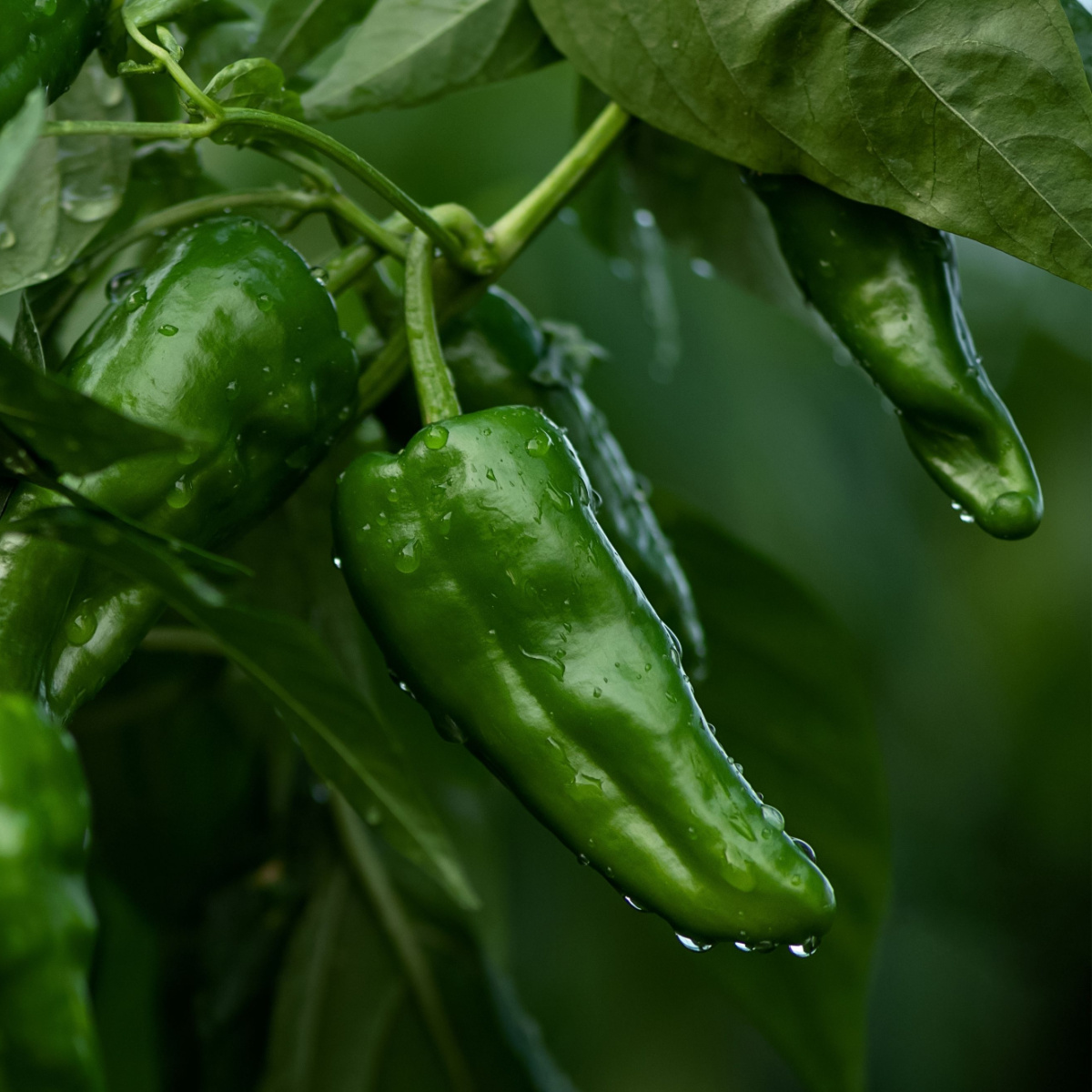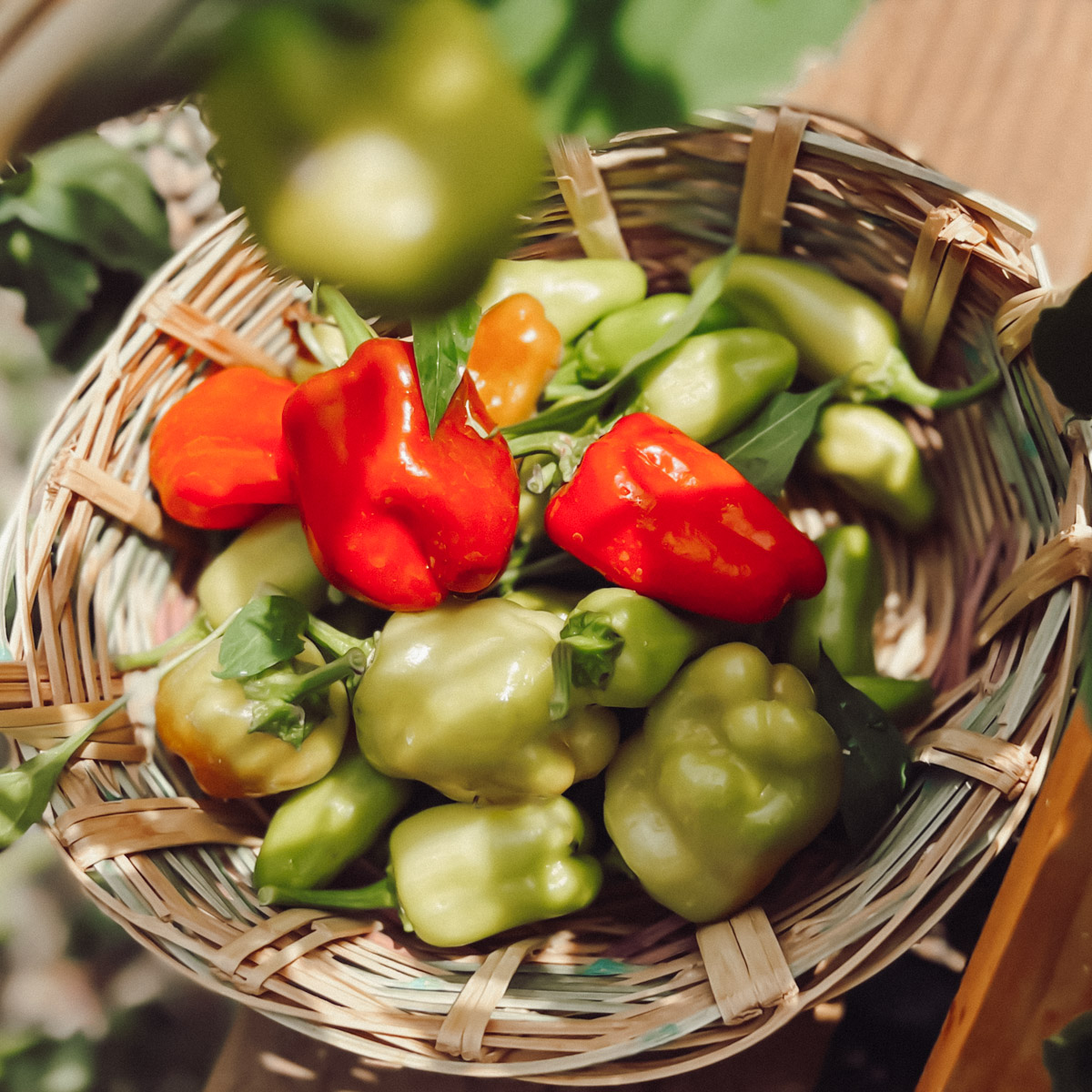Selecting the Best Fertilizers for Peppers: Professional Recommendations
Selecting the Best Fertilizers for Peppers: Professional Recommendations
Blog Article
Organic Vs. Synthetic Fertilizers: Which Is Best for Nurturing Healthy Pepper Plants?
In the world of nurturing healthy pepper plants, the selection between synthetic and organic fertilizers stands as a critical decision with far-reaching implications. While both options goal to offer important nutrients to sustain plant growth, the subtleties of their impact on the soil, plant wellness, and the setting trigger an argument that echoes throughout the horticulture area. Understanding the distinct benefits and prospective risks of each plant food type is vital for pepper cultivators seeking to optimize their returns while preserving a lasting and eco-conscious method.
Advantages of Organic Plant Foods
Organic plant foods supply a sustainable and environmentally-friendly technique to beneficial pepper plants, offering important nutrients without the use of synthetic chemicals. These natural fertilizers are acquired from organic resources such as garden compost, manure, bone meal, and algae, advertising soil health and biodiversity. Unlike synthetic fertilizers, natural alternatives release nutrients slowly, making certain a balanced and constant supply for pepper plants to prosper.
One considerable benefit of organic plant foods is their capacity to boost soil framework and water retention. By enhancing soil health and wellness, natural fertilizers promote beneficial microbial task, which assists in nutrient uptake by pepper plants. Additionally, natural plant foods minimize the risk of chemical run-off, safeguarding water sources from pollution and safeguarding the atmosphere.
Additionally, organic plant foods add to long-term dirt fertility by promoting the development of advantageous dirt microorganisms. These microorganisms help break down raw material, launching nutrients in a type that is conveniently accessible to pepper plants. best fertilizers for peppers. By fostering a healthy and balanced dirt environment, organic plant foods sustain lasting pepper farming methods that benefit both plants and the environment
Drawbacks of Artificial Fertilizers
Synthetic fertilizers, in contrast to their organic equivalents, pose various disadvantages when made use of to nourish pepper plants, influencing both plant health and ecological sustainability. One major downside of synthetic plant foods is their propensity to leach nutrients from the soil rapidly.
Additionally, the overuse of synthetic fertilizers can add to water pollution. Excess fertilizers not soaked up by plants can get rid of right into water bodies, bring about eutrophication, where algae blossoms deplete oxygen degrees in the water, harming water life. Artificial plant foods are generally acquired from non-renewable sources, such as fossil gas, adding to carbon emissions and ecological degradation during their manufacturing.
Nutrient Absorption Comparison
When comparing artificial and organic fertilizers in terms of nutrient absorption, natural fertilizers have the advantage of supplying a more balanced and slow-release resource of nutrients. Organic fertilizers have a variety of macro and micronutrients that are not only valuable for the plants however likewise promote healthy and balanced soil microbial activity, which assists in nutrient uptake.
Additionally, natural fertilizers improve soil framework and water retention capability, permitting pepper plants to accessibility nutrients much more successfully. This enhanced soil quality promotes root development, making it possible for better nutrient absorption. Synthetic fertilizers, although initially boosting plant growth this contact form because of their high nutrient concentrations, may prevent long-lasting nutrient absorption by degrading soil health with time.
Ecological Influence Considerations

On the various other hand, synthetic fertilizers, although frequently even more immediately offered and focused to plants, can have harmful effects on the setting if not applied correctly (best fertilizers for peppers). Their manufacturing calls for high power inputs, causing greenhouse gas discharges and adding to climate modification. In addition, the runoff of excess artificial fertilizers can pollute water resources, bring about eutrophication and harming aquatic environments.
Finest Plant Food Practices for Peppers
To accomplish this, it is necessary to comply with finest fertilizer practices customized to the certain demands of pepper plants. One critical technique is to do a soil examination before applying any type of fertilizers.
Another vital method is to feed pepper plants at the correct time. Generally, peppers take advantage of getting fertilizer at planting and after that once more when they start to flower. Over-fertilizing can lead to nutrient discrepancies and hurt the plants, so it is vital to follow recommended application rates.
Furthermore, selecting a well balanced fertilizer with an NPK ratio that suits pepper plants' needs is basic. Organic plant foods, such as garden compost or manure, can be outstanding choices as they release nutrients slowly and enhance soil structure over time. Synthetic plant foods can give a quick nutrient boost when needed. Eventually, incorporating synthetic and organic plant foods judiciously can assist support healthy and balanced you could try here pepper plants while lessening environmental influence.
Conclusion

Organic plant foods offer a lasting and environmentally-friendly technique to beneficial pepper plants, providing crucial nutrients without the usage of artificial chemicals. Unlike artificial plant foods, organic choices release nutrients slowly, making certain a balanced and consistent supply for pepper plants to prosper.
Synthetic plant foods, in contrast to their natural counterparts, posture numerous drawbacks when utilized to nourish pepper plants, influencing both plant health and wellness and environmental sustainability. When comparing organic and artificial fertilizers in terms of nutrient absorption, organic plant foods have the advantage of supplying an extra well balanced and slow-release source of nutrients.Moreover, organic plant foods enhance soil framework and water retention ability, allowing pepper plants to access nutrients extra efficiently.
Report this page